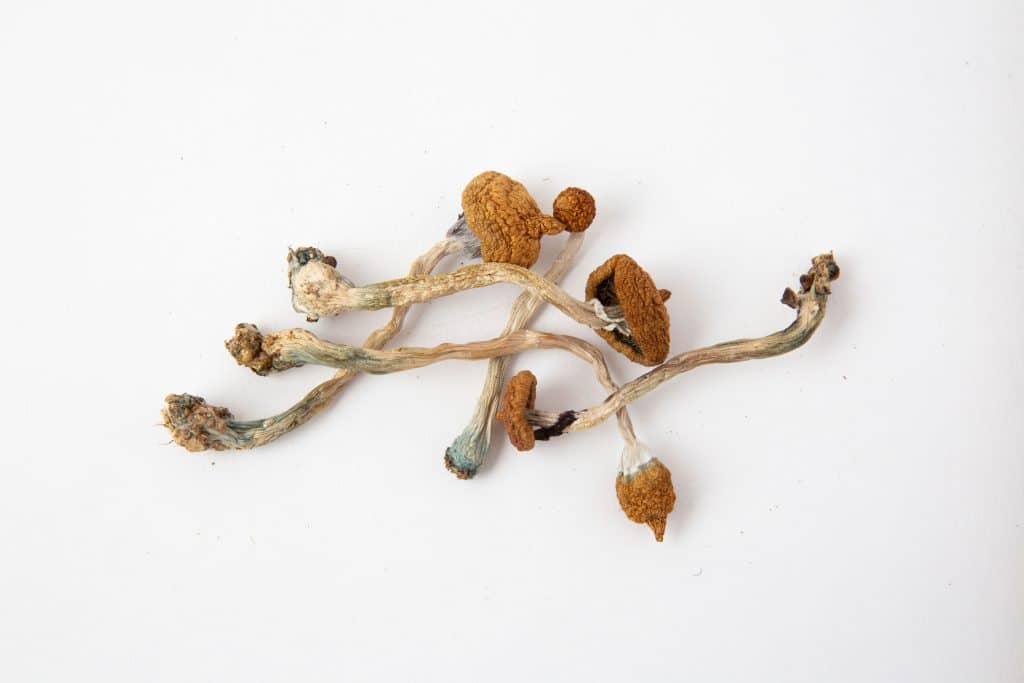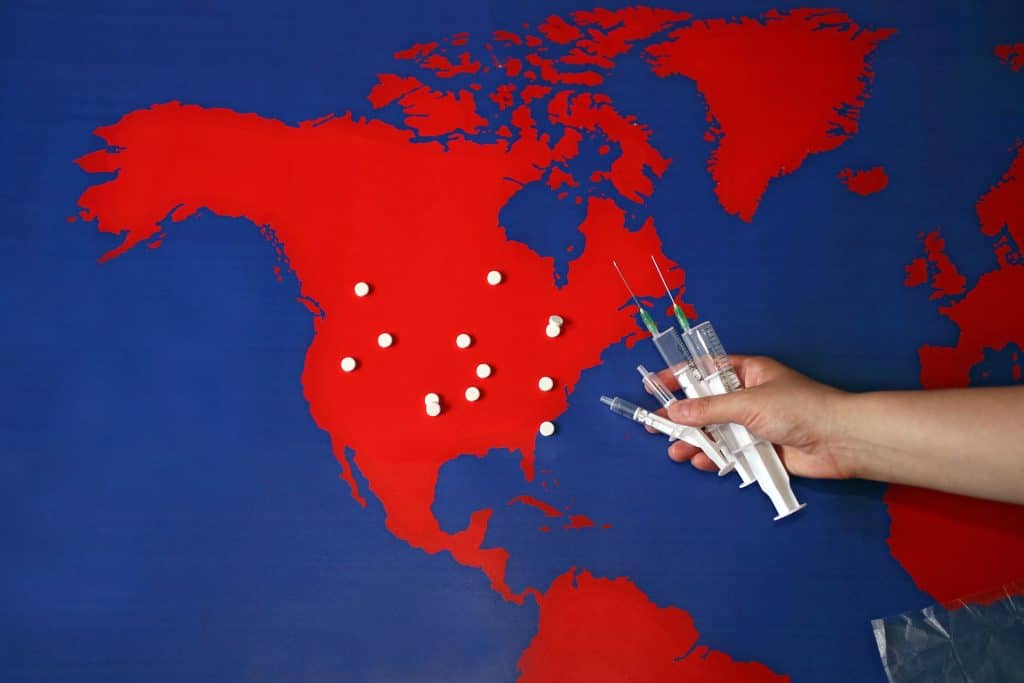Sometimes different parts of a government don’t work in tandem the way we think. This idea was epitomized when David Eby, the Premiere of British Columbia, was blindsided by the news that Health Canada made allowances for two companies to legally sell cocaine. Read on to find out more about Canada getting in on the cocaine industry, and the two companies that now have cocaine approvals.
What happened?
Adastra Labs, out of Langley, British Columbia, put out a press statement in the last few days. In it, the company explained it gained an approval back on February 17th, in regards to an amendment to its Controlled Substances Dealer’s License. The amendment involves cocaine. This was news to David Eby, the Premiere of BC, who said if such a move was made, it was done by the federal agency, with no notification to the local government or province.
This comes after British Columbia already decriminalized hard drugs within the province, as a way of dealing with the growing opioid use, and overdose rate. This new policy started at the end of January, and only applies to British Columbia, not the rest of Canada. The reason is that British Columbia specifically applied to the federal government to receive an exemption from the Controlled Drugs and Substances Act. The federal government approved this, but implemented it not as a law, but as a three-year pilot program.
Under the decriminalization, 2.5 grams or less of a drug is no longer criminalized. This accounts for drugs including opioids, cocaine, methamphetamine, and MDMA. BC has had over 11,000 deaths from illicit drugs since 2016, which is why the application was put through, and why the federal government approved it. While such measures have proved useful in other countries like Portugal, one must wonder on the logic of applying the same setup in a circumstance where the drugs are continuously given out by doctors.
Thanks for being here. We provide email updates via the Cannadelics Weekly Newsletter, which also comes full of top notch deals on products like cannabis buds, vapes and related equipment, edibles, smoking devices, cannabinoid compounds, and a whole bunch more. Getting stoned is fun. Do so responsibly!
What is allowed?
According to Adastra’s statement, the amended license lets the company “interact” with a max of 250 grams of cocaine, and also allows the company to import coca leaves, for making synthetics. Along with cocaine, the company has an allowance to work with psilocybin and psilocin from magic mushrooms (it can distribute up to 1000 grams). CEO Michael Forbes said the company would figure out the commercialization value within the constructs of its own business model, to formulate a way to move forward with maintaining a safe supply of cocaine to meet demand.
He noted the harm reduction aspect, saying, “Harm reduction is a critically important and mainstream topic, and we are staying at the forefront of drug regulations across the board. We proactively pursued the amendment to our Dealer’s License to include cocaine back in December 2022.”
It seems that Health Canada made the move very quietly, with no one knowing much about it. Perhaps it could foresee some backlash. Said BC legislature, and opposition leader, Kevin Falcon, “Cocaine isn’t prescribed, it isn’t safe, and this is wrong. Commercializing cocaine as a business opportunity amounts to legalizing cocaine trafficking, full stop.”
Spokesman Kevin Hollett of BC Centre on Substance Use, seemed just as confused by the move. He said the agency doesn’t know much, (or anything), about it. He reminded that “To my knowledge, prescribed safer supply in BC is focused on opioids, so I’m not clear how this might fit in, if it does at all.”
What about the second company?
If all this sounds like it could be the made-up antics of a company to get press, then consider that yet another company made a similar press statement. On March 2nd, amid the ire of David Eby for being shut out of the federal government’s decision, Sunshine Earth Labs also announced that it had been approved licensing to both produce and sell cocaine.
The company said in a statement that Health Canada gave permission for it to “legally possess, produce, sell and distribute coca leaf and cocaine,” with the inclusion of morphine, MDMA, and heroin. This is slightly different from Adastra, which also got leeway for using the compounds in psilocybin mushrooms – psilocybin and psilocin – as a part of its own allowance.

Most of the recent relaxation in drug policy in Canada is driven by the opioid crisis and growing overdose rate. With more than 11,000 deaths in recent years in CB alone, and the rise of fentanyl bringing on more and more overdoses, BC is looking to do whatever it can to help the problem. But is this part of it? And how do cocaine allowances and an opioid problem, relate? Health Canada didn’t explain fully, but it did finally make a statement on Friday, March 3rd.
What does Health Canada have to say about it?
This Friday, the government agency finally said something. It said in a statement that “They cannot sell products to the general public,” speaking of the two companies that received licensing for cocaine production and sale. As per Health Canada in reference to Adastra Labs, it said the company couldn’t sell to the public, and was only legally permitted to sell the cocaine – or other included substances – to other dealers for controlled substances, who already hold licensing and have the drugs in question, as part of their license. This includes pharmacists, practitioners, hospitals, and researchers, only.
While this story is only just breaking, according to Adastra Labs CEO Forbes, the company actually received the Controlled Substances Dealer’s license last August. In December, 2022, it requested Health Canada update it with licensing for cocaine. That part was approved in February.
According to Health Canada via a statement, the agency “thoroughly reviews applications to ensure that all the appropriate policies and procedures are in place to maintain public health and safety and security.” And that it had reiterated to the company “the very narrow parameters of their license.” So that “If the strict requirements are not being followed, Health Canada will not hesitate to take action, which may include revoking the license.”
British Columbia and overdoses
Health Canada certainly didn’t say anything about this as something related to the opioid crisis, yet that’s how its framed in most publications. The stories are tied. And that doesn’t make much sense considering the opioid issue involves a doctor’s prescription much of the time, with addictions that started because of actual medical needs. As long as the province allows doctors to continue providing these drugs; it probably shouldn’t expect any measure to work. No place with this issue should.
I’ve said time and time again, that the better answer is an immediate switch to ketamine, but it seems no government wants to break from opioid pharma money to do anything useful. Of course, without direct cocaine sales, the only thing that actually happened here, is the insinuation that cocaine might get clearance for medical use. But that seems pretty unrelated to the opioid and overdose issue.

How big is that issue? In terms of British Columbia, which is the 3rd largest province in Canada with approximately 5.2 million inhabitants, its pretty bad. It declared a public health emergency in 2016 due to the growing number of opioid overdoses. In 2021 there were 2,224+ fatal overdoses specifically in the province, which is 26% higher than the previous year; and 700% increased from seven years before. All told, the region has seen over 11,000 overdose deaths since 2016.
What about fentanyl specifically? In 2021, approximately 83% of fatal overdose victims tested positive for fentanyl, while 187 turned up positive for fentanyl analogue, carfentanil. For the latter, those numbers represent almost triple the number of positive samples from 2016. As for 2021 numbers, its thought that about 71% of fatal overdoses were for people between the ages of 39-59. The biggest issue comes from the following locations within BC: Vancouver, Surrey, and Victoria.
Perhaps the strangest part of the current story, is that its about cocaine, and yet being tied to opioids. A medical cocaine industry, and an opioid overdose issue are unrelated. And while Health Canada isn’t tying the two together, it seems that everyone else wants to, despite a lack of logic for how they fit together. The thing that it looks like is actually happening, is that Canada might be onboard to use cocaine for medical purposes in the future.
Conclusion
Though it doesn’t seem to be directly for end users, Canada did approve two companies to work with and sell cocaine. Perhaps we should remember that some countries like the US, already hold cocaine as a Schedule II drug, meaning it has approved medical uses. Canada has it in Schedule I right now, so what we’re likely seeing, is the beginning of a medical market for it, like the US already has. Why it wasn’t framed this way from the beginning, I really can’t say.
Welcome one and all! Cool that you made it to Cannadelics.com. We’re an independent news platform with an eye on the burgeoning cannabis and psychedelics fields of today. Join us frequently to stay in-the-know on everything going on; and subscribe to the Cannadelics Weekly Newsletter, so you never miss a single thing.
The post Stepping It Up: Canada Approved Two Companies to Sell Cocaine appeared first on Cannadelics.
Via https://cannadelics.com/2023/03/04/stepping-it-up-canada-approved-two-companies-to-sell-cocaine/
source https://rosalinaklerkx.weebly.com/blog/stepping-it-up-canada-approved-two-companies-to-sell-cocaine
No comments:
Post a Comment